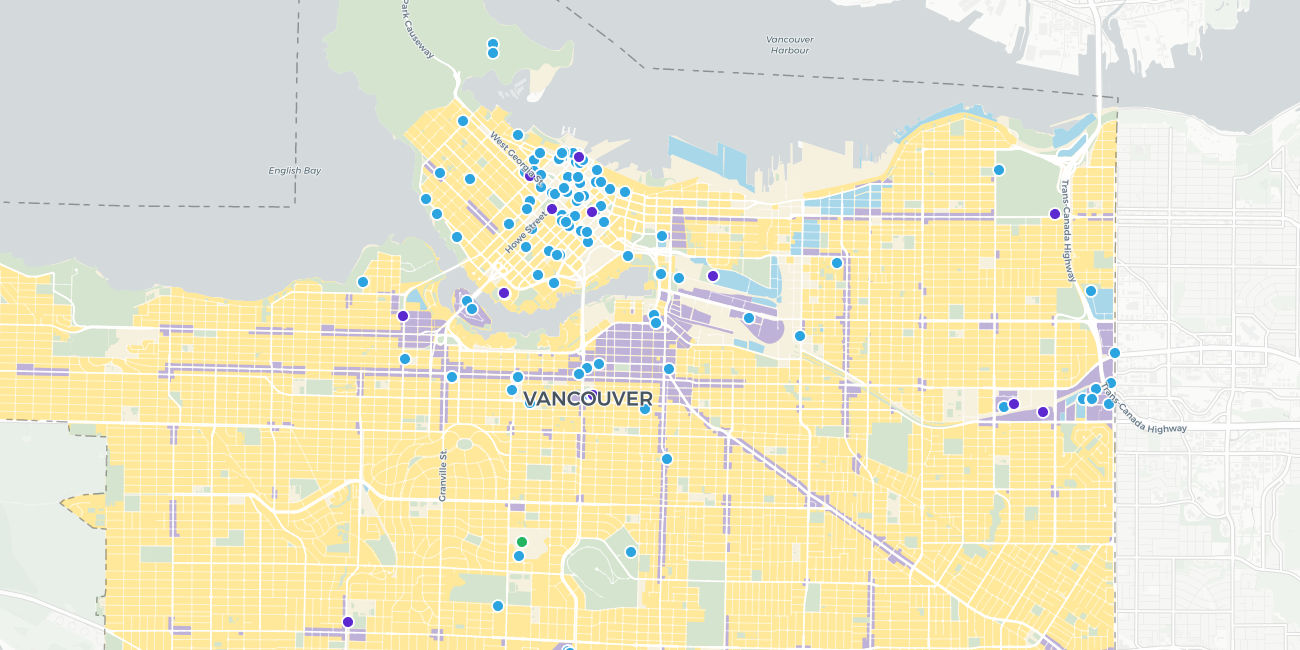Improving urban freight technologies
Expanding the use of zero-emission vehicles (ZEVs) in goods movement is one of the most direct ways to decarbonize the freight sector. ZEVs are vehicles that have the potential to produce zero tailpipe emissions, such as battery-electric, plug-in hybrid electric, and hydrogen fuel-cell vehicles.
Publicly accessible DC fast-charging stations could be expanded in number and distribution
Electric vehicle charging stations
Electric vehicle (EV) charging stations data shows the number and locations of the stations. It indicates the spatial distribution of charging stations as it relates to land-use patterns, and population and employment densities. DC fast chargers (public access) are more expensive than standard charging stations and, for that reason, are less abundant. Publicly accessible DC fast chargers could increase in number and distribution to facilitate the uptake of electric delivery vehicles.
Like many Canadian cities, Vancouver is increasing the supply of electric vehicle charging stations. The electric-delivery-vehicle model would be increase more, however, if the city installed more charging stations to ensure coverage of both residential areas and commercial zones for business deliveries. Specifically, companies operating in the west end, central, and southeast Vancouver would benefit from more fast chargers in those areas.
More data on delivery vehicle behaviours is needed to establish baseline conditions
Delivery truck travel behaviour
Improving freight delivery in Canada’s urban areas requires more data on existing trips by vehicle type, fuel type, fuel consumption, energy used per kilometre travelled, and carbon emissions produced per kilometre traveled, to establish a baseline of the current vehicle demands. This data would inform an understanding of how best to facilitate the switch to zero-emission freight vehicles.

